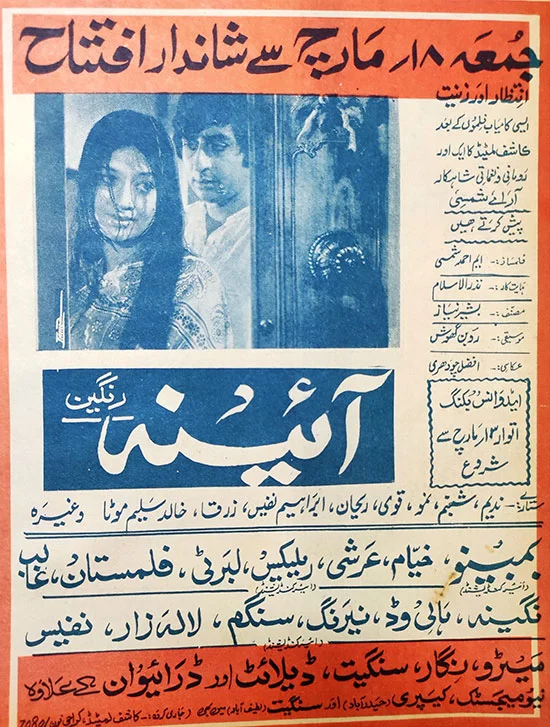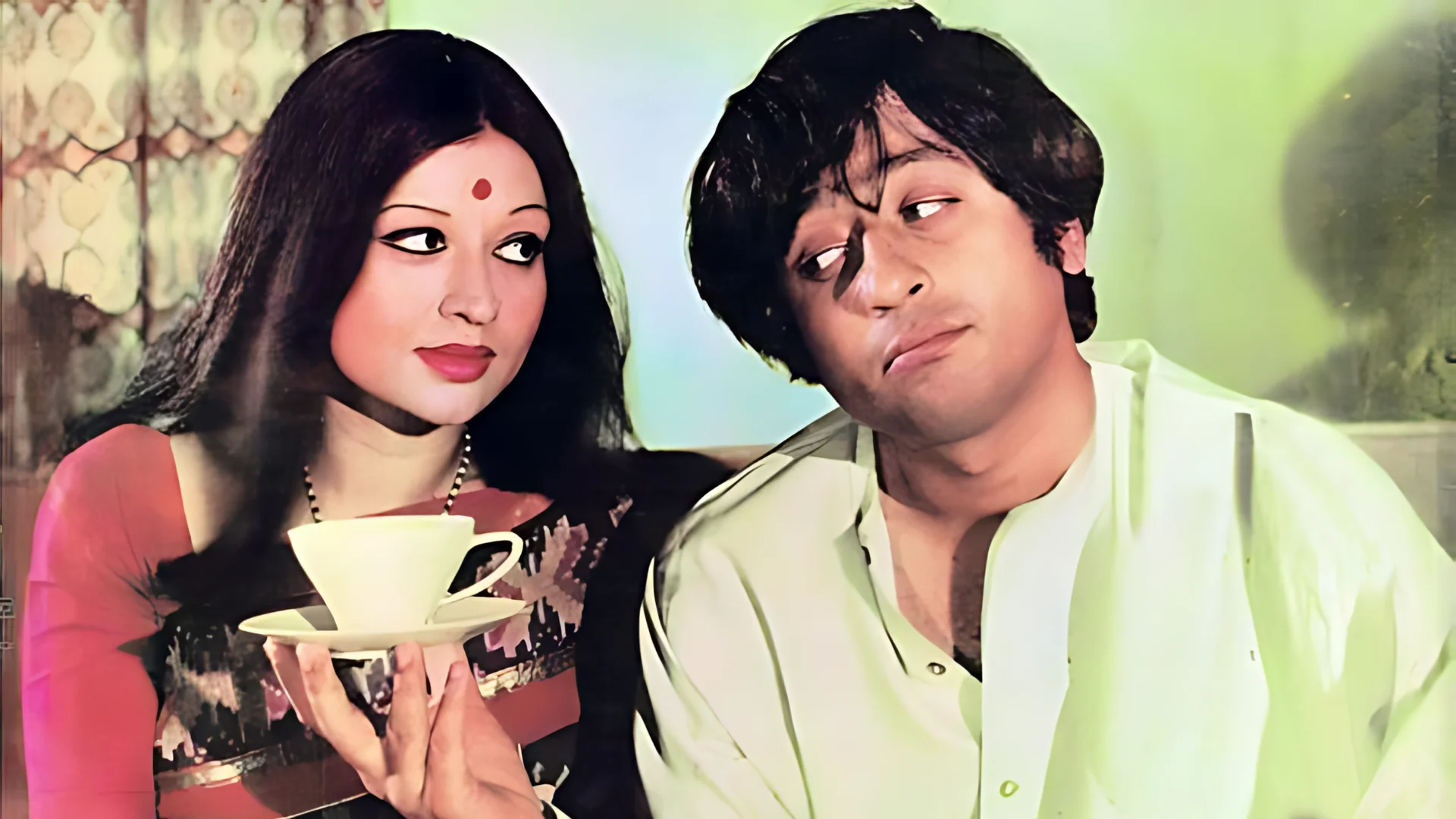Most of us will start humming the very moment someone will mention ‘mujhay dil se na bhulana’… triggering a wave of nostalgia – a melody instantly familiar even after nearly five decades.
We all know the lyrics and the tunes for it is a timeless classic, living in our heads even after 47 years of its release. But not just the song, the Aaina film itself was a big hit that ruled over Lollywood for five years straight – making it the longest-run, most-watched film.
Aaina film was not just another masterpiece of Nadeem and Shabnam duo, it was a romance that made people cry in the cinema halls.
When the election hustle of the days ended into nights, people would turn to the cinema, not knowing they were making history for a cult classic that was played without break for more than 400 weeks. This was the Pakistan of 1977, and the Aaina film’s release also coincided with the rise of a new political era in the country. Alamgir’s music career kicked right there.

Many will ask why the Aaina film got more fame over some 50 other movies where Shabnam and Nadeem were the lead hero and heroine. One because Shabnam’s husband, the music director of Aaina – Robin Gosh experimented with some musical influence from his origin place, Bangladesh. So while a cultural distance came in after the East Pakistan episode, it was the yearning and longing that made Shabnam and Robin give Pakistan this masterpiece. Not to mention that Nadeem also started his earlier small works from Dhaka. So this was a shared journey, a shared pain for all three.
And no wonder the film’s storyline was copied cross-border, in ‘Payar Jhukta Nahi’ but no other movie could beat the music and cinematography of Aaina film. For those who couldn’t experience the magic firsthand, the film’s songs became a constant presence during Pakistan Television (PTV) commercial breaks.
Tracks like “Roothay Ho Tum Tumko Kaisay Manaun” transcended the film itself, becoming ingrained in the hearts of a generation who may never have seen Aaina on the big screen. These songs were more than just entertainment; they were threads woven into the fabric of everyday life.
To wrap it up, do we need to make sequels of such great films to revive these successes for the generation of the day? A big time yes!! But with a caveat, may be. Sequels often struggle to recapture the magic that made the original so special. The true power lies in reinterpretation.
Imagine a fresh take on the story of Aaina film, not a scene-by-scene remake, but a thematic exploration for a modern audience. Perhaps it delves deeper into the social and political climate that surrounded the film’s release, drawing parallels to contemporary struggles. The story could be retold from a different perspective, exploring the heartbreak not just of the lovers, but of a nation grappling with separation and loss.
Apart from the movie, it’s a pity these adorable songs have not caught the eye of any composer who may make some newer, slowed, and reverb versions of these classics.
The music too offers fertile ground for reinterpretation. We can revisit these cherished melodies not just through slowed-down, reverb-drenched versions, but through creative remixes that incorporate contemporary soundscapes. Imagine a pulsating electronic beat underpinning the yearning vocals of “Mujhay Dil Se Na Bhulana,” creating a powerful juxtaposition of modern and classic.
Also Read: The Fault in Our Stars
Ultimately, honoring these classics isn’t about blind imitation. It’s about breathing new life into them, finding ways to connect with a new generation while preserving the essence of what made them so special.
It’s a chance to create a bridge between generations, a way for young listeners to connect with the emotions and storytelling that enthralled their parents and grandparents.
It’s a chance to relive the magic for those of us who grew up with these melodies, and to share it with a whole new generation of music lovers. After all, isn’t that what good art does – transcend time and resonate with new audiences in new ways?
The views expressed in this article are the author’s own. They do not necessarily reflect the editorial policy of the South Asia Times.
Nuzhat Rana, a young scholar of International Relations, and Peace and Conflict, has a keen interest in Pakistan's foreign policy and China's behavior. A passionate advocate for women's rights, she brings a nuanced perspective to her work.






![Muslim female students wearing hijabs are denied entry to classrooms in Udupi, reflecting rights violations in India's Karnataka [Image Credits: AP]](https://southasiatimes.org/wp-content/uploads/2022/02/202202asia_india_udupi_hijab-150x150.webp)
Wonderful comment on an epic romantic tale